Surrounded by nothing but vast stretches of green, green grassland and a few fluffy sheep locked up in pens to commiserate with, I felt like Sarah Jessica Parker’s character in the 2009 movie Did You Hear About the Morgans? — a city girl placed in a witness protection program in the middle of nowhere, bored out of my wits and almost ready to bludgeon my partner.
Except that I came here voluntarily. Travel blogs and social media liken the farmlands nestled in the mountains of central Taiwan’s Nantou County (南投) to the European countryside, but to two foreigners — one who has traveled extensively through Europe and one who was from Europe — our farm stay feels more like an introductory boot camp in Taiwanese couple culture.
Don’t get me wrong. The view is nothing short of breathtaking — at 2,100m above sea level, you’re practically standing at eye level with the clouds at Cingjing Farm (清境農場). Pine trees dot the mountain range which slope up and down, sometimes dipping into little houses that vaguely resemble castles, sometimes into orchards selling fresh fruit. The air is crisp and cool, even during summer. If you’re looking for a nature retreat to escape the sweltering heat, Nantou’s farmlands are calling.
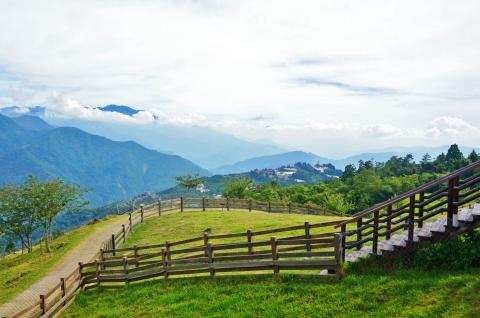
Photo: Dana Ter, Taipei Times
The caveat? Lots of cute photo opportunities, couple-oriented activities and lights out at 8pm — unless you’re into that. The circus show of kawaii-ness was not for me, but as I came to learn, it was something to take with a pinch of salt — a trade-off for the view. And I certainly left with a good story to tell.
STUNNING SCENERIES, TAWDRY TASTES
Lesson one: rent a car. Or else the most scenic part of your trip will be the bus ride up and down the mountain. Along the way are majestic blue rivers meandering through valleys and vertical rice fields cutting through pastures. These areas, which aren’t accessible by foot or public transport, would have been a great adventure to explore.
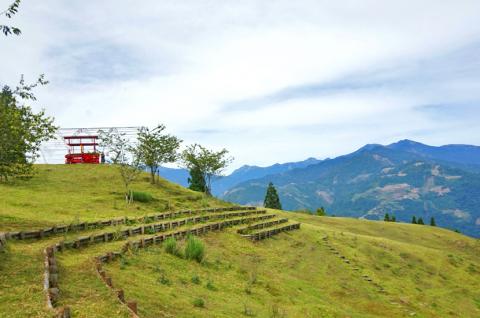
Photo: Dana Ter, Taipei Times
Without a car, two nights in Cingjing is enough — even stopping by for a few hours from Taichung en route to Sun Moon Lake (日月潭) is highly feasible. The Sun Moon Lake-bound bus runs from Taichung’s high speed rail station to Puli (埔里), the nearest town at the foothill of the mountain heading up to Cingjing. Another bus shuttles visitors between Puli and Cingjing.
Lesson two: pack your own soap and food. Lots of it. While accommodation can be hit and miss, dining is just a miss. In 2013, the Taipei Times reported that the majority of the guesthouses in the area — which were “notorious for the faux Tudor style or Alpine designs” — were deemed illegal (“Interior ministry to close unlicensed lodging in Cingjing,” Dec. 6, 2013, page 3). We stayed in a cabin at the Bunbury Fruit Ranch (清境民生果園山莊), an upper-mid-range B&B which seemed to be operating legally. However, I was a bit dismayed to find that plumbing was nonexistent and the room in our cabin with the best view was a tawdry “walk-in wardrobe.” In the middle of it sat a shoddy fold-up table with measuring sticks and tools scattered on top. While soap and shampoo is provided, I still recommend bringing your own, as they did not appear to be top quality. Unlike what the name suggests, there is no fruit-picking in the orchards either — just a few measly stands outside the premises of the B&B hawking fruits.
The dining “hot spot” where travelers congregate is the visitor center next to a huge parking lot situated a five-minute walk from our B&B. Here, a tiny outdoor food court serves probably the most edible and cheap soup noodles you’ll find up on the mountain. There’s also a 7-Eleven, Mos Burger and Starbucks, which will keep you going for about two or three days. Don’t bother trying any of the Western-style restaurants in the castle-like structures — their pasta is overpriced and resembles the microwavable spaghetti you can find at convenience stores.
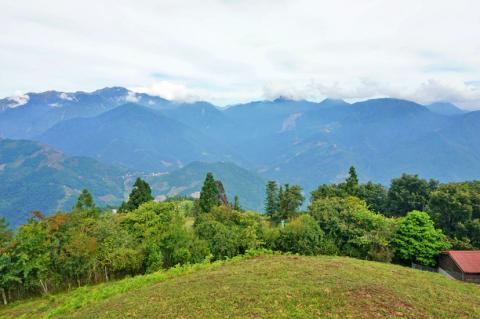
Photo: Dana Ter, Taipei Times
That being said, you’re better off surviving on snacks from the 7-Elevens, which are found at almost every nook, crevice and intersection on the way up the mountain — ironically, they also have the best views. The attempt to recreate an Alpine getaway is befuddling, as I would have been content with sipping green tea that wasn’t packaged from a 7-Eleven and indulging in a hearty Taiwanese meal or even an all-you-can-eat hotpot.
COUNTING SHEEP…AND PINWHEELS
Lesson three: farms are not made for solo travelers. I’m glad I didn’t venture to Cingjing by myself because all the activities were designed for couples or big groups of people. Let’s start with the Little Swiss Garden (小瑞士花園). Consisting of a small pond, a couple of windmills and hundreds of tiny rainbow-colored pinwheels fastened to grass, the garden looked like a miniature pride parade prepped for cartoon mice to wed.
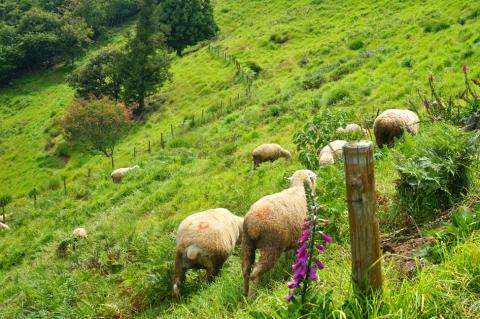
Photo: Dana Ter, Taipei Times
Couples amble along hand-in-hand, pausing every now and then to whip out their selfie sticks to pose for pictures with flowers and shrubs. There’s also a giant rainbow-colored “Love” sign and a rainbow-colored Cinderella carriage, both of which make ideal backdrops for pictures-taking, apparently. To top it off, a stereo from an abandoned cafe blasts love songs — to set the mood, of course.
Fifteen minutes in, and we are plotting our escape from the Little Swiss Garden. Hijacking a car and driving away was an option, so was building safety harnesses and scaling down the mountain MacGyver-style.
We stayed on though, and the farm experience did get better as we made our way up the mountain. The 499-step hiking trail has some scenic spots along the way, although signs warn of poisonous snakes. When we reached what appeared to be the summit, I was crestfallen to discover that it was just more trees and shrub. However, look out for a little wooden ticketing booth — that’s the entry to the main farm where the prime attraction is a sheepshearing show complete with a sheepshearer from New Zealand.
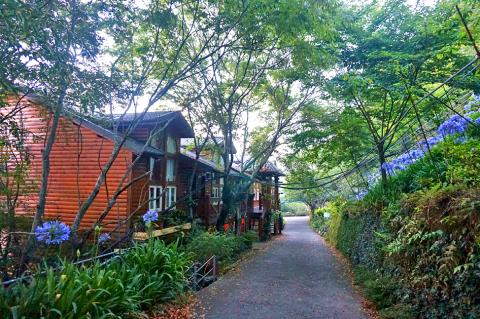
Photo: Dana Ter, Taipei Times
Another 10-minute walk into a forest, and you’re greeted with vast stretches of farmland and rolling hills. We gave the sheepshearing show a miss and wandered about the farm instead. Despite the roving hordes of slow-walking couples and more unnecessary pinwheel decorations, it was a pleasant walk. There are a couple of spots to veer off the path and run into the open pastures, which, quite honestly, have the best unobstructed views and secluded spots for picnics — which is why it makes sense to pack your own food. A good picnic spot can be found next to the sheep ranch, plus you can see the sheep up close without having to attend the sheepshearing show.
The sunset over the mountain range made our visit to Cingjing Farm worth the trek. The sky turns a foggy, grayish-blue hue with strides of pale yellow peeking through, outlining the curvature of each mountain like gentle brush strokes on rice paper. Naturally, don’t expect to do much past 8pm, except perhaps watching scary movies in your cabin or inventing your own ghost stories — desperate times call for creative measures.
At times, it felt like I was waking up to a pseudo-reality in which I was trapped in a couples’ retreat where all the attractions involved some sort of bonding activity with your partner. I can’t guarantee you’ll have a good time at Cingjing, but I can guarantee that you’ll leave with a lot of incredulous stories to tell, the sort where you don’t know whether to laugh or cry, or both, and sometimes these are the best kinds of stories.
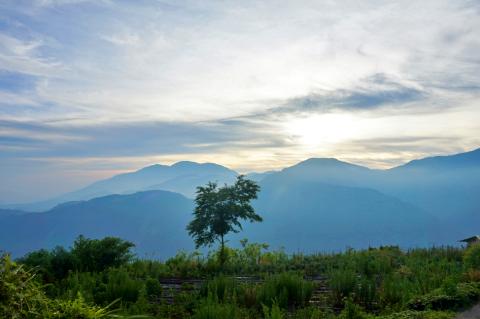
Photo: Dana Ter, Taipei Times
Most important lesson: as long as you have each other, you’ll find a way to survive.
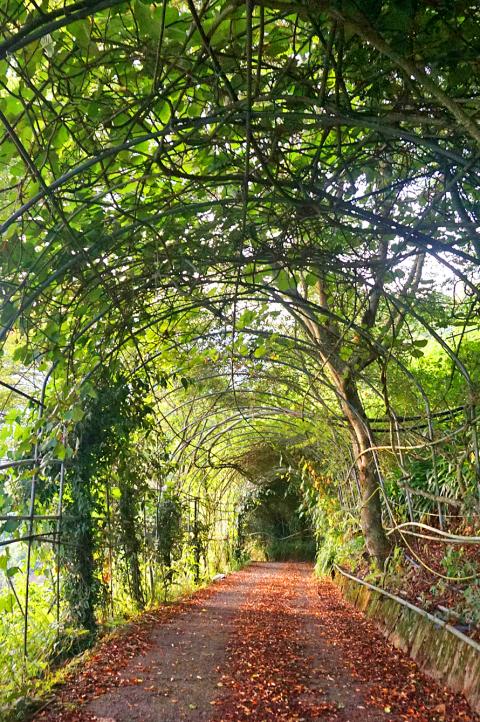
Photo: Dana Ter, Taipei Times
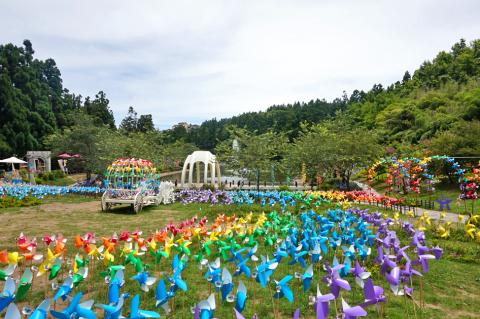
Photo: Dana Ter, Taipei Times

One of the biggest sore spots in Taiwan’s historical friendship with the US came in 1979 when US president Jimmy Carter broke off formal diplomatic relations with Taiwan’s Republic of China (ROC) government so that the US could establish relations with the People’s Republic of China (PRC). Taiwan’s derecognition came purely at China’s insistence, and the US took the deal. Retired American diplomat John Tkacik, who for almost decade surrounding that schism, from 1974 to 1982, worked in embassies in Taipei and Beijing and at the Taiwan Desk in Washington DC, recently argued in the Taipei Times that “President Carter’s derecognition

This year will go down in the history books. Taiwan faces enormous turmoil and uncertainty in the coming months. Which political parties are in a good position to handle big changes? All of the main parties are beset with challenges. Taking stock, this column examined the Taiwan People’s Party (TPP) (“Huang Kuo-chang’s choking the life out of the TPP,” May 28, page 12), the Democratic Progressive Party (DPP) (“Challenges amid choppy waters for the DPP,” June 14, page 12) and the Chinese Nationalist Party (KMT) (“KMT struggles to seize opportunities as ‘interesting times’ loom,” June 20, page 11). Times like these can

JUNE 30 to JULY 6 After being routed by the Japanese in the bloody battle of Baguashan (八卦山), Hsu Hsiang (徐驤) and a handful of surviving Hakka fighters sped toward Tainan. There, he would meet with Liu Yung-fu (劉永福), leader of the Black Flag Army who had assumed control of the resisting Republic of Formosa after its president and vice-president fled to China. Hsu, who had been fighting non-stop for over two months from Taoyuan to Changhua, was reportedly injured and exhausted. As the story goes, Liu advised that Hsu take shelter in China to recover and regroup, but Hsu steadfastly

You can tell a lot about a generation from the contents of their cool box: nowadays the barbecue ice bucket is likely to be filled with hard seltzers, non-alcoholic beers and fluorescent BuzzBallz — a particular favorite among Gen Z. Two decades ago, it was WKD, Bacardi Breezers and the odd Smirnoff Ice bobbing in a puddle of melted ice. And while nostalgia may have brought back some alcopops, the new wave of ready-to-drink (RTD) options look and taste noticeably different. It is not just the drinks that have changed, but drinking habits too, driven in part by more health-conscious consumers and